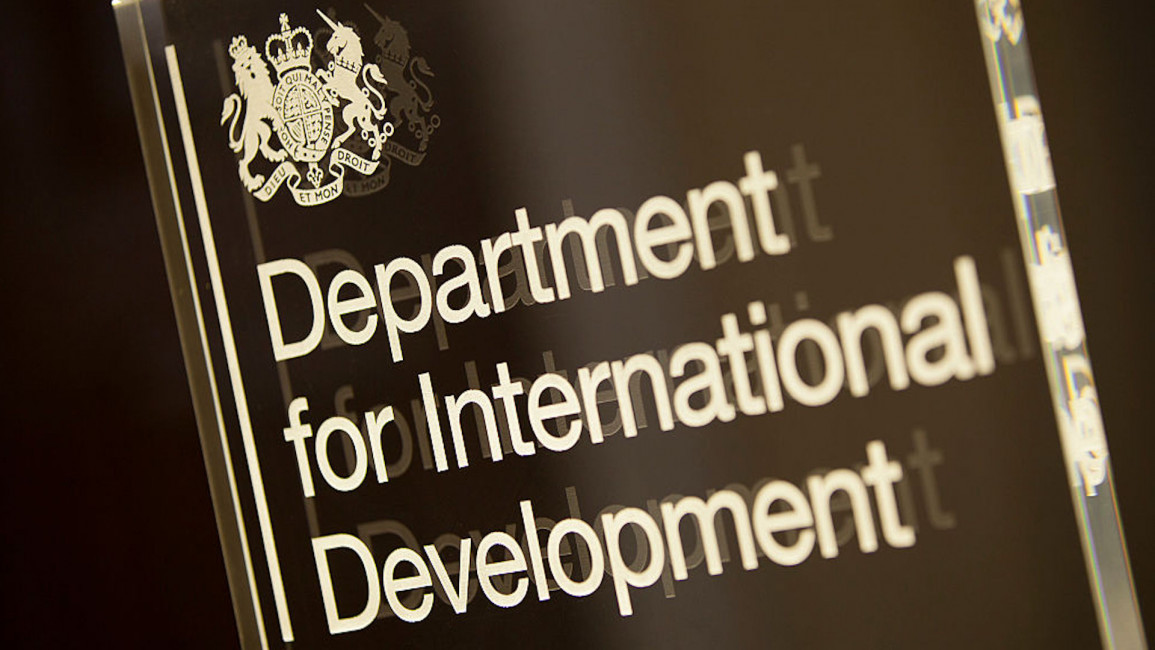Johnson slammed for dissolving UK's international aid department
Johnson told parliament that the move is a "big step forward for global Britain" and that the merger was necessary to "strengthen our position in an intensely competitive world by making sensible changes".
Dissolving DfID means that £14.5 billion of the UK's foreign aid budget, which was used by the aid department to tackle humanitarian causes, will now be absorbed and distributed by the FCO.
The decision has sparked outcry from both sides of the parliament.
Labour leader Keir Starmer said Johnson’s announcement "deflected" from the deteriorating circumstances of the battle against the coronavirus, which has seen the UK record one of the highest death tolls in the world.
Twitter Post
|
"I want to see Britain as a moral force for good in the world,” he said, "a force for global justice and co-operation, leading the world on global security, leading the global search for a vaccine, leading the fight against poverty, climate change and gender inequality".
The move also drew criticism from the PM's own benches, with Conservative MP, Andrew Mitchell - DfID secretary from 2010 to 2012 - branding the move "a mistake".
"First it would destroy one of the most effective and respected engines of international development anywhere in the world," he said.
"Second many of the senior figures who are key to Britain’s role as a development superpower will likely leave and go elsewhere in the international system - at a stroke destroying a key aspect of Global Britain.
"Third it is completely unnecessary as the prime minister exercises full control over DfID's strategy and priorities through the National Security Council."
As DfID is already under the direction of the UK government many believe this move is likely to change little regarding its political ethos.
Professor of Development Studies at SOAS, University of London, Gilbert Archar believes Johnson's announcement will provide transparency in the UK's aid agenda: “The idea that DfID is separate from state interests is rather naive. However, [Johnson's decision] does make it clear that now the actions of UK aid will be regarded as clearly linked to the government's foreign aid policy. In a sense it will be more transparent, lessening the ability to pretend DfID stood for something else.”
“There are people in Dfid who have altruistic illusions that see their work as truly humanitarian, but the people pulling the strings are the same ones running the government. DfID was an arm of the British government at the end of the day.”
The chair of the International Development Committee, Labour MP Sarah Champion, said the merger was akin to a "hostile takeover".
She added that DfiD's independence from the FCO allows it to prioritise humanitarian needs around the globe instead of championing the UK's political interests.
DfID supports a number of aid programmes in the Middle East and North Africa.
The latest project was one of co-operation between DfID and counterparts in the region to tackle the spread of Covid-19, Minister for the Middle East James Cleverly said on the May 22 of this year.
"The UK Government has pledged support of more than £30 million over the last few months to life-saving programmes across the region, providing essential medical equipment to treat critical care patients and train frontline medics," according to the DfID website.
But Professor Archcar argues there is a hostile attitude towards foreign aid in the region: “In the Middle East, more than in any part of the world, there is a strong disillusionment regarding actions by world powers. Because of the history of the region, people have an acute skepticism towards aid, as they see it strongly related to political agendas. For example, the UK gives aid, but then is implicated with states which violate their people's human rights. Look at Yemen, they are giving aid but still selling arms to Saudi Arabia.”
DfID's roots are in a department for aid set up by the Labour government of Harold Wilson in 1964.
It has since been absorbed by the FCO under numerous Conservative administrations, namely Margeret Thatcher’s in 1979.
It was granted independence from the FCO by Labour leader Tony Blair, giving it its current name in 1997.
Follow us on Facebook, Twitter and Instagram to stay connected


![Minnesota Tim Walz is working to court Muslim voters. [Getty]](/sites/default/files/styles/image_684x385/public/2169747529.jpeg?h=a5f2f23a&itok=b63Wif2V)




![Debris near Rafic Hariri International Airport [Getty]](/sites/default/files/styles/image_330x185/public/2176162423.jpeg?h=a5f2f23a&itok=MCSK9mkM)
![An Israeli air strike on Jabalia killed teenage journalist Hassan Hamad [Screengrab/X]](/sites/default/files/styles/image_330x185/public/2024-10/hassan%20hamad1.jpg?h=c12e0b96&itok=Rd_dyCVp)
